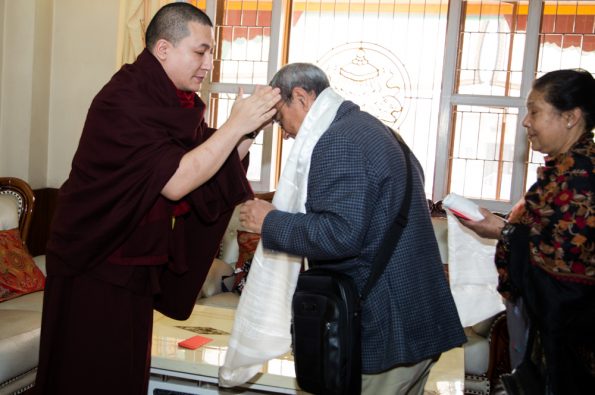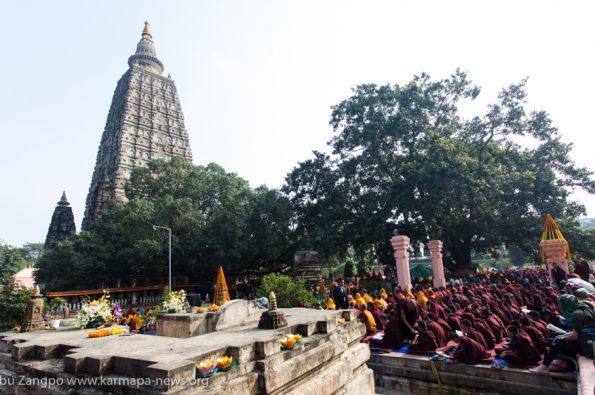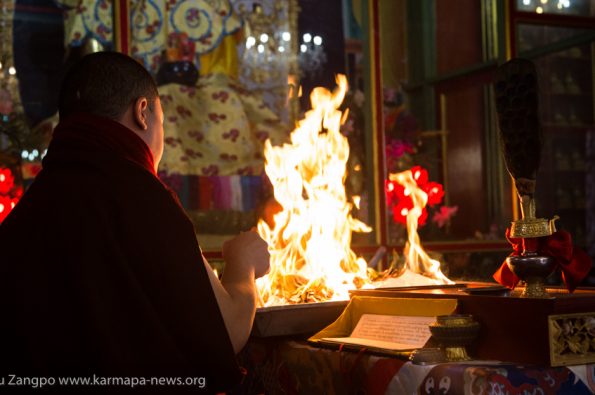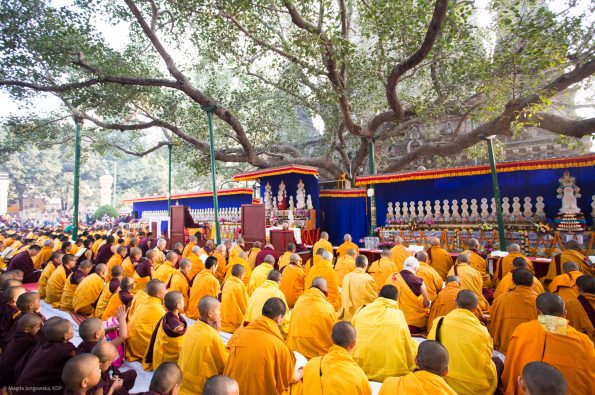Pain Gain and the Race of Life. Gyalwa Karmapa publishes article in Huffington Post.
Pain Gain and the Race of Life
This summer, the world is looking towards London to celebrate its athletes. For them, the saying ‘no pain, no gain’ is part of their path to excellence. For the rest of us, we might be left wondering whether all this pain is necessary. Wouldn’t life be much easier if we only had gain?
Nobody wants pain and crises, but in life, it is inevitable that we will go through such experiences. They are a general part of life – there is no life without pain. In fact, from a Buddhist perspective there is a lot of truth in the saying ‘no pain, no gain’, though maybe not exactly in terms of how it is usually understood.
How to make it work for you If we know how to use our wisdom in dealing with the pain and difficulties we go through, such experiences can help us develop greater understanding and inner wealth.
1. Accept that pain is a natural part of life: From time to time we will go through pain, emotional turmoil and crises, simply because all of these are part and parcel of our human existence.
Therefore, understanding that however hard we might try we cannot exactly avoid such experiences, we might as well accept them and learn something from them. However hard we might try to avoid the inevitable, when we accept and attempt to understand painful experiences, we can learn and grow.
2. Pain and joy are – like light and darkness – two sides of the same medal. They are interdependent and inseparably connected to each other. When painting a picture or taking a photograph, if there is no light and no darkness, there is no picture and there is no painting. It is the very contrast of light and darkness that brings out the beauty and the colour.
Similarly, since we do have a life, there is no point in saying that we want a life without problems and crises. That would be just like saying that we would like to have a picture without light and darkness. To take this train of thought further, from that perspective even life itself seems to be dependent on death, too. There is no life without death – and the opposite is equally true.
This kind of understanding can really help us appreciate this experience called life – and appreciate the opportunities that we have to help ourselves and help others.
3. Wake up, wise up: Whenever we face any form of crisis and apply our wisdom to it, pain has the ability to make us aware of our physical and mental state – like a kind of wake-up call. Even though we might not be exactly happy about the pain, we can then find a way of appreciating the experience. Rather than focusing exclusively on getting rid of the pain as quickly as possible we are able to extract something meaningful from those feelings.
We all have a mind, and there is no mind without wisdom. Let us use our wisdom meaningfully, to see the nature of life, rather than using it to try to see a painting without light or shade. However in order to bring out our inherent wisdom, we really have to allow ourselves a moment to contemplate. By extracting anything that is helpful for our minds, we can help ourselves and help others. We don’t need to move mountains. It’s so simple – all we have to do is share our experience.
When we embrace pain as part of the mosaic of our life experiences, we gain a new perspective on life and the world – and get ahead together in the race of life.
Click here to read an article on huffingtonpost.co.uk




